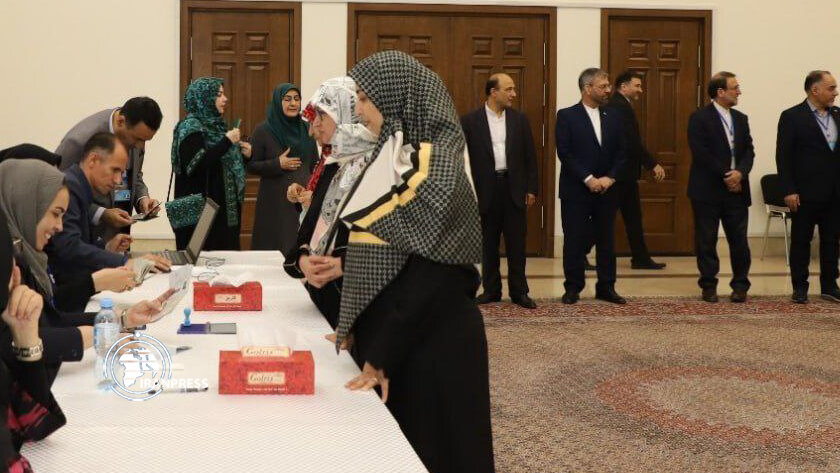Iranian voters abroad show increased participation despite challenges

TEHRAN – Despite facing significant challenges and adversity, Iranians living abroad turned out in increased numbers to vote in the runoff presidential election on Friday.
The head of the election headquarters abroad, Alireza Mahmoudi, reported a notable 20% increase in voter turnout, highlighting the dedication and commitment of the diaspora to participate in their nation's democratic process.
Mahmoudi, who oversees the foreign election headquarters based in the Ministry of Foreign Affairs, noted, "We witnessed the presence of more Iranians at the ballot boxes in the second round. For this reason, two additional ballot boxes were provided in Spanish agencies and at Najaf airport." This increased turnout prompted logistical adjustments, including the addition of a new voting branch at the U.S.-Canada border within the Washington Office of Interest Protection.
The voting process began in the easternmost part of New Zealand and continued across the globe, culminating in the United States. Mahmoudi emphasized the improved security measures at polling stations, stating, "The security situation of the branches has improved significantly, and according to the will of the countrymen, the colleagues in the Ministry of Foreign Affairs were able to provide better conditions."
However, the journey to cast votes was not without difficulty for those outside Iran. Many Iranian voters abroad faced harassment and even assault in the first round of the election. On June 28, thousands of Iranians living in Britain visited polling stations in cities including London, Manchester, Birmingham, Newcastle, Glasgow, and Cardiff to cast their votes. Outside these polling stations, they were subjected to verbal, and even physical abuse by anti-Iran individuals.
Reports indicate that some attackers filmed themselves sexually abusing female voters, using derogatory language and making rape threats. Male voters also faced assaults from individuals linked to terrorist groups, monarchists, and separatist factions. These attackers later bragged on social media about their efforts to intimidate and dissuade voters through harassment.
These incidents underscored the risks and challenges that expatriate voters encountered. Despite these obstacles, Iranian citizens traveled great distances to reach embassies, consulates, and designated voting branches, demonstrating their unwavering determination to participate in the electoral process.
Polls opened at 8:00 a.m. local time in each country hosting a polling station on Friday. Iran's Foreign Ministry organized some 344 stations across the globe to draw the votes of around 10 million eligible Iranian voters who live abroad.
According to data from the Secretariat of the Supreme Council of Iranians Abroad, the distribution of Iranians living abroad is as follows: 30 percent in the U.S., 12 percent each in Turkey and Canada, approximately 10 percent each in the UK and the UAE, and 6.5 percent in Germany. Smaller proportions of Iranians, 2.4 percent each, live in Sweden and Australia, while France is home to around 2 percent of the Iranian expatriate community.
Most countries have cooperated with Iranian authorities to set up polls, with the notable exception of Canada. The head of the overseas election committee stated on Friday that Iranians living in Canada can cast their votes at two polling stations on the border with the United States.
"Due to the obstructions by the Canadian government, two polling stations in Buffalo and Seattle have been set up, like the previous round, to collect Iranians' votes," Mahmoudi explained. Last week, some Iranians in Canada traveled for "almost a day" to reach the polling stations at the U.S. border, he added.
The resilience and commitment shown by Iranian voters abroad highlight the importance they place on their right to vote and their engagement in shaping the future of their homeland. Their participation, despite significant hurdles, is a testament to their dedication to democratic principles and their hope for a better future.
Out of 30.5 million votes counted in Friday’s runoff, Pezeshkian won 53.6%, edging out Saeed Jalili, who had 44.3% of the votes.
Leave a Comment